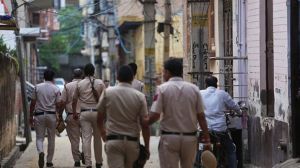Scandal throws transition team early challenge
For the Obama team in the days after his election to the presidency, the question of who would succeed him in the Senate was a sensitive one.

For the Obama team in the days after his election to the presidency, the question of who would succeed him in the Senate was a sensitive one. With a new administration to build and a financial crisis worsening by the day, Obama and his advisers had bigger issues on their plate.
Moreover, they wanted to keep their distance from Governor Rod R Blagojevich, who was already known to be under federal investigation into possible corruption. But many still assumed that Obama’s voice would be critical if he chose to weigh in.
Exactly what role he or his team played will be a focus of intense scrutiny in the weeks to come after the arrest of Blagojevich on accusations that he was plotting to trade or sell the Senate appointment.
In that sense, the furore could be the first test of the Obama team’s ability to manage a growing scandal in an era when intense media scrutiny and partisan attack machinery can escalate any flap into a serious political problem.
Obama said on Tuesday that he had never spoken with the governor about the seat, and prosecutors have not implicated Obama or his advisers. At the same time, Obama’s team has declined for two days to answer questions about what discussions they had about the seat and whether intermediaries had any contacts with Blagojevich’s advisers.
Republicans have raised questions about Obama’s refusal to say more and about his past ties with the main characters. Even if Obama remains untouched by the investigation, it shines a light on the corrupt politics of the state he emerged from and takes attention away from the agenda of change he would rather emphasise.
“This is a huge distraction at the worst possible moment,” said Lanny J Davis, a former White House special counsel who did damage control for President Bill Clinton.



- 01
- 02
- 03
- 04
- 05




























